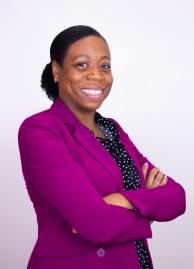
Dr. Brittany Taylor is an Assistant Professor in the Department of Biomedical Engineering at the University of Florida (UF). Her group investigates the multi-scale reparative processes of musculoskeletal tissues to inform the development of tailored acellular restorative engineering approaches and overcome natural healing deficiencies. As the recipient of the University of Pennsylvania Provost's Postdoctoral Fellowship, her postdoctoral research focused on the development of a drug delivery system for rotator cuff repair and investigating the role of collagen type V during the tendon inflammatory and remodeling processes. Dr. Taylor received a Doctor of Philosophy in Biomedical Engineering from Rutgers University and a Bachelor of Science in Biomedical Engineering from the University of Virginia.
Dr. Taylor has continuously been funded by the National Science Foundation (NSF) and National Institutes of Health (NIH) as a trainee and by the Burroughs Wellcome Fund, and the Alliance for Regenerative Rehabilitation Research and Training (AR3T) as a PI. She has a consistent publication record with 35+ publications, two patents, and five book chapters. Dr. Taylor’s research has been featured in the top journals within her field, such as Journal of Orthopaedic Research and Acta Biomaterlia. Additionally, she has received numerous recognitions and awards such as Rising Star on the CellPress list of Top 100 Inspiring Black Scientists in America, MIT Rising Star in Biomedical Science, 2018 Mid Atlantic PREP/IMSD Research Symposium (MAPRS) Distinguished Alumni Award, and the Bristol-Myers Squibb-UNCF E.E. Just Postgraduate Associate Fellowship. In addition to her research accomplishments and contributions, Dr. Taylor has been active in the broader scientific community. She is an active member of the Orthopaedic Research Society (ORS), Biomedical Engineering Society (BMES), Society of Biomaterials (SFB), and Society of Chicanos and Native Americans in Science.
Dr. Taylor has a breadth of experience mentoring a diverse pool of students, including middle-school aged youth, undergraduate female students majoring in STEM, underrepresented minority (URM), first-generation undergraduate student, and collegiate student-athletes. She is the co-founder of multiple initiatives to increase retained representation throughout the academic pipeline and a co-author on a number of publications focusing on reinforcing the academic pipeline and tailored mentoring to support the next generation of diverse scientists.
